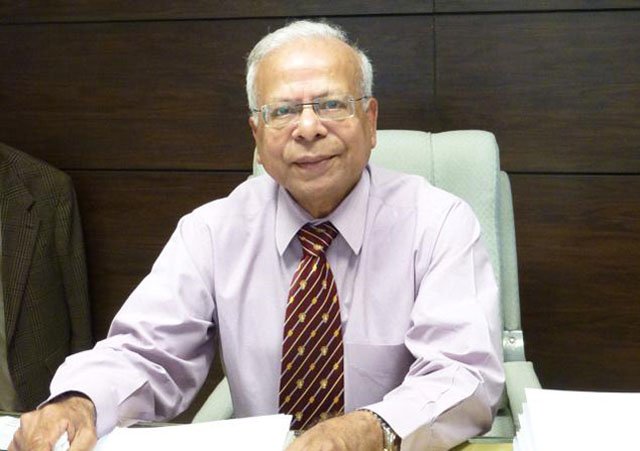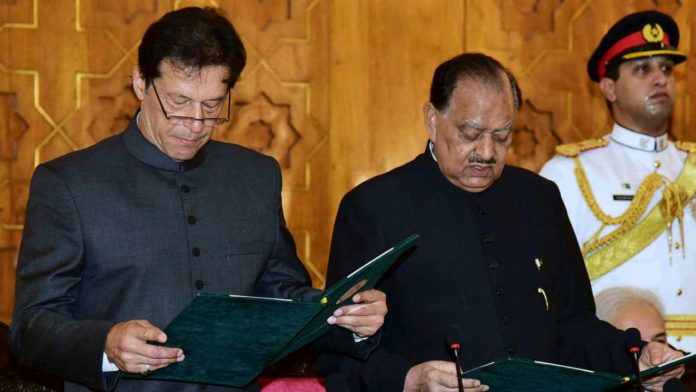Imran Khan won over the hearts of the masses by his very candid and honest manner in his address to the nation as PM. Delivered from the heart in plain words, his talking points scribbled in his own handwriting he meant what he said. The nation has been waiting to hear from their leaders for the last 71 years about the poor-rich divide and the vital issues haunting the masses on the poverty line or barely above it. Not attacking the Opposition directly, he held them responsible for the current debt crisis of Rs. 28 trillion that 10 years ago (2008) was only Rs. 6 trillion.
Pledging to cut govt spending, end corruption and repatriate public funds, he promised Pakistani expatriates a conducive investment environment, exhorting them to deposit their hard-earned money into Pakistani banks through official channels to provide some relief to our current financial crunch. Outlining deficiencies in Pakistan’s human development and the health-care sector, he promised adopting austerity measures to relieve the strain on the economy and tackle foreign debt. Appealing to the people to team up with him to improve health-care system and provide proper nutrition to children, he said his govt will improve the public sector educational institutions to absorb the more than 20 million children not going to schools. Madaris too would include modern subjects so that students across the broad spectrum could become engineers, doctors, etc.
To symbolise austerity, the PM will himself stay in the 3-bedroom Military Secretary’s residence in the PM’s House keeping only two employees out of the 524 reserved for the sitting premier. Retaining only two of the 80 cars at the PM house, 33 of them very expensive bullet proof ones, he requested the business community to purchase them at an auction. Promising to convert all existing Governor Houses into public places, the PM House would be converted into a world class university.
Urging the wealthy to start paying taxes, a perennial problem with less than 1 percent of the population filing income tax, Pakistan has become notorious for tax dodgers. Instead of trying to rebuild the economy by external loans, he vowed to bring about changes in the Federal Board of Revenue (FBR) having lost its credibility because of corruption. Promising to protect the people’s tax money to ensure it is spent on them, he urged the people to start paying taxes not only for a better life but also to lift the destitute out of poverty.
Imran planned to meet the Chairman National Accountability Bureau (NAB) facilitating making NAB more effective and more transparent in its fight against corruption. Imran Khan hopes to enact a law for “whistleblowers” in the manner he has done in Khyber Pakhtunkhwa (KPK), whoever helps identify corruption gets a share of the money that is recovered. The PM has decided to keep the Interior Ministry and Federal Investigation Agency (FIA) under himself as “I want to personally oversee our efforts to eradicate corruption”.

Reforming the civil service serving as the backbone of bureaucracy is a priority for the PM, to enforce meritocracy and restore it to its formerly held high standards. “In the 1960s we were considered one of the best in the world,” he said. “It is unfortunate how we have fallen behind. This is largely because of a few corrupt individuals and unbridled political interference” unquote. Dr. Ishrat Hussain, former Governor State Bank of Pakistan (SBP) has been tasked to form a Committee to bring merit back. Warning that that political interference will not be tolerated in any appointments, the PM announced bonuses for the selfless and efficient employee and penalties for those who failed.
Imran Khan stressed upon transferring the devolution of power saying that previous govts were loathe to introduce local govt or kept creating roadblocks in its implementation, “Power must be given to the bottom-most tier. Nazims will be directly elected in districts, while checks and balances will be kept.“ Every attempt to introduce local govts has been met with resistance from the bureaucracy, especially by the District Management Group and the Police Service of Pakistan, who claim superiority over the district administration as a backdrop of their colonial legacy.
The PM stressed increasing Pakistan’s exports by facilitating all the industries to remove bottlenecks and hurdles. He promised to bring back investment into the country by making an environment for investment. Our embassies across the world will engage all overseas Pakistanis (and others) who may wish to take our goods and products. A “Business Advisory Council” is being set up to provide assistance and help address their challenges.
The PM explained his vision of using the examples of governance set by the Holy Prophet (Peace Be Upon Him) “to bring the nation out of its plight,“ in essence creating a Medina-style Islamic Welfare State. Calling the Holy Quran as his fundamental and eternal guide for lifting the country based on such a model, he put forth a five-point agenda 1) Supremacy of law where the law has to be the same for everyone 2) Zakat, where the rich pay more to subsidize the poor 3) Compassion, today this is practiced more in the west where even animals are cared for in ways that would put us to shame, 4) Merit, rulers must be Sadiq and Ameen, they have to be truthful with no conflict of interest and 5) Education, the Holy Prophet stressed education above everything else, even making it incumbent on his people to attain an education.
Treating challenges confronting the nation as opportunities, Imran Khan spoke about revamping the judiciary, implementing KP model of police in Punjab, repatriate our Pakistanis stuck in jails abroad, increase green cover in cities, water scarcity, building new dams, environmental issues, a crackdown on child sex abuse, etc. In essence all reforms and proposals focussed on safeguarding Pakistan’s resources and their redistribution from the rich to the less advantaged. Such was the sincerity in his tone and such was the power behind his message that even his detractors failed to find any negative aspects, the best they could do was be critical about topics the PM did not dwell upon.
The road to “Naya Pakistan” is littered with challenges and threats which are in fact opportunities. This is indeed a new beginning holding promise for the common man who was energized by hearing Imran speaking the language they wanted to hear. This uncommon man, someone who does not ask for much in return for his promises is now on his way to really become an “uncommon“ PM.




